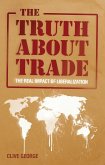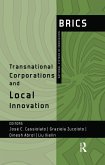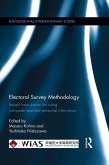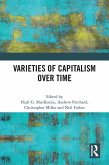Access to oil and natural gas, and their prices, are hugely important axes of geo-political strategy and global economic prospects and have been for a century. This book, written by a Financial Times journalist who has long covered the energy sector, provides readers with the essential information they need for understanding the shifting structure of the global oil and gas economy: where the reserves lie, who produces what, trade patterns, consumption trends, prices.
The book highlights political and social issues in the global energy sector -- the domestic inequality, civil conflict and widespread poverty that dependence on oil exports inflicts on developing countries and the strategies of wealthy countries (especially the United States) to control oil-rich regions.
Energy demand is on a strong upward trend. The reality of the environmental damage caused by fossil fuels cannot be doubted. What are likely to be the human consequences: changing disease vectors, unprecedented flooding, mass migration? And what is to be done both in the wealthy countries where consumerism drives increasing growth in demand and in developing countries aiming to grow their economies faster? Are alternative energy sources a panacea? Or will the much vaunted hydrogen economy still be based on oil, natural gas and coal?
Here is a book that addresses what is perhaps the most pervasive and destabilizing of the issues facing humanity.
The book highlights political and social issues in the global energy sector -- the domestic inequality, civil conflict and widespread poverty that dependence on oil exports inflicts on developing countries and the strategies of wealthy countries (especially the United States) to control oil-rich regions.
Energy demand is on a strong upward trend. The reality of the environmental damage caused by fossil fuels cannot be doubted. What are likely to be the human consequences: changing disease vectors, unprecedented flooding, mass migration? And what is to be done both in the wealthy countries where consumerism drives increasing growth in demand and in developing countries aiming to grow their economies faster? Are alternative energy sources a panacea? Or will the much vaunted hydrogen economy still be based on oil, natural gas and coal?
Here is a book that addresses what is perhaps the most pervasive and destabilizing of the issues facing humanity.









